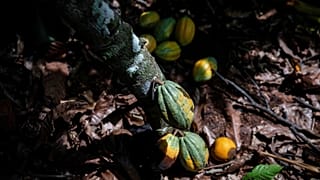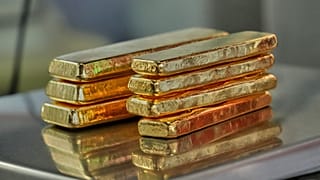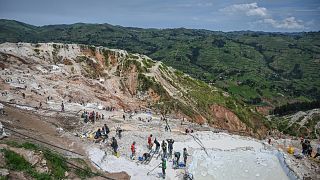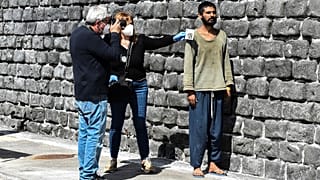Zimbabwe
Inflation in Zimbabwe hiked up in January in dollar and local currency terms, rising by 14.6% and 10.5% respectively in a year-on-year comparison.
According to independent economist Prosper Chitambara, the increase in inflation is due to higher taxes and a regional drought last year, which put pressure on food prices.
The Finance Ministry notably introduced a 0.5% tax on fast food and a 10% tax on sports betting proceeds in its latest budget, which came into effect this month.
Zimbabwe launched a new gold-backed currency in April last year, but it was sharply devalued in September.
Most local transactions still rely on foreign currencies like the U.S. dollar.
Since the devaluation, the Zimbabwe Gold currency has fallen further.
It was trading around 26.3 to the dollar on Tuesday, according to the central bank’s website.













01:55
One year into M23 control, residents are struggling to get by in DRC's eastern capital
01:51
In Ivory Coast, cocoa farmers have nobody to sell their produce to
11:17
Eco-charcoal gains traction as a cleaner, cheaper alternative to firewood {Business Africa}
00:50
Ghana's multidimensional poverty rate declines for third consecutive quarter
00:51
Nigeria to revise inflation reporting after artificial spike expected in December
01:12
Iran warns Washington it will retaliate if the US launches an attack